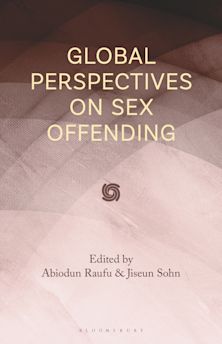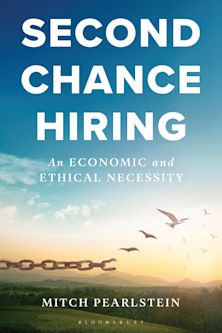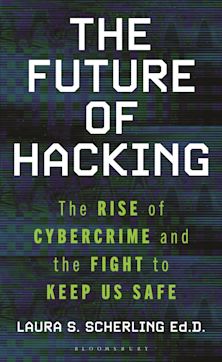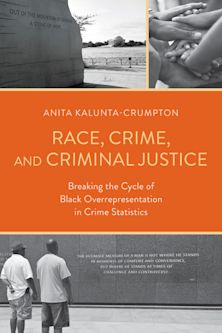- Home
- ACADEMIC
- Criminology
- Criminology - Other
- What Is Crime?
What Is Crime?
Controversies over the Nature of Crime and What to Do about It
Stuart Henry (Author) , Mark M. Lanier (Author) , Mortimer J. Adler (Contributor) , Kathyrn Ann Farr (Contributor) , Marc Gertz (Contributor) , Don C. Gibbons (Contributor) , Leroy C. Gould (Contributor) , Scott Greer (Contributor) , John Hagan (Contributor) , Gary Kleck (Contributor) , Jerome Michael (Contributor) , Dragan Milovanovic (Contributor) , Charles Otto (Contributor) , Katheryn K. Russell (Contributor) , Paul Schnorr (Contributor) , Herman Schwendinger (Contributor) , Julia Schwendinger (Contributor) , Dennis C. Sullivan (Contributor) , Ray Surette (Contributor) , Paul W. Tappan (Contributor) , Larry L. Tifft (Contributor)
- Textbook
What Is Crime?
Controversies over the Nature of Crime and What to Do about It
Stuart Henry (Author) , Mark M. Lanier (Author) , Mortimer J. Adler (Contributor) , Kathyrn Ann Farr (Contributor) , Marc Gertz (Contributor) , Don C. Gibbons (Contributor) , Leroy C. Gould (Contributor) , Scott Greer (Contributor) , John Hagan (Contributor) , Gary Kleck (Contributor) , Jerome Michael (Contributor) , Dragan Milovanovic (Contributor) , Charles Otto (Contributor) , Katheryn K. Russell (Contributor) , Paul Schnorr (Contributor) , Herman Schwendinger (Contributor) , Julia Schwendinger (Contributor) , Dennis C. Sullivan (Contributor) , Ray Surette (Contributor) , Paul W. Tappan (Contributor) , Larry L. Tifft (Contributor)
- Textbook
This product is usually dispatched within 3 days
- Delivery and returns info
-
Free US delivery on orders $35 or over
Exam copy added to basket
Choose your preferred format. Please note ebook exam copies are fulfilled by VitalSource™.
You must sign in to add this item to your wishlist. Please sign in or create an account
Description
For decades, scholars have disagreed about what kinds of behavior count as crime. Is it simply a violation of the criminal law? Is it behavior that causes serious harm? Is the seriousness affected by how many people are harmed and does it make a difference who those people are? Are crimes less criminal if the victims are black, lower class, or foreigners? When corporations victimize workers is that a crime? What about when governments violate basic human rights of their citizens, and who then polices governments? In What Is Crime? the first book-length treatment of the topic, contributors debate the content of crime from diverse perspectives: consensus/moral, cultural/relative, conflict/power, anarchist/critical, feminist, racial/ethnic, postmodernist, and integrational. Henry and Lanier synthesize these perspectives and explore what each means for crime control policy.
Table of Contents
Chapter 2 Crime in Context: The Scope of the Problem
Part 3 Classic Statements
Chapter 4 The Nature of Crime
Chapter 5 Who Is the Criminal?
Chapter 6 Defining Patterns of Crime and Types of Offenders
Chapter 7 Defenders of Order or Guardians of Human Rights?
Part 8 New Directions
Chapter 9 Crime as Social Interaction
Chapter 10 Defining Crime in a Community Setting: Negotiation and Legitimation of Community Claims
Chapter 11 The Media's Role in the Definition of Crime
Chapter 12 Racing Crime: Definitions and Dilemmas
Chapter 13 Constitutive Definition of Crime: Power as Harm
Chapter 14 A Needs-Based, Social Harms Definition of Crime
Part 15 Integrating Approaches
Chapter 16 Crime as Disrepute
Chapter 17 The Prism of Crime: Toward an Integrated Definition of Crime
Chapter 18 Notes
Chapter 19 Index
Chapter 20 About the Authors
Product details
| Published | Feb 07 2001 |
|---|---|
| Format | Paperback |
| Edition | 1st |
| Extent | 272 |
| ISBN | 9780847698073 |
| Imprint | Rowman & Littlefield Publishers |
| Dimensions | 9 x 6 inches |
| Publisher | Bloomsbury Publishing |
About the contributors
Reviews
-
If I had my way, a course on What Is Crime? would be a prerequisite to introductory criminology. Leading criminological theorists of the last several generations debate the issue. It is the most accessible book on the topic-well edited and organized.
Contemporary Sociology
-
Of all the materials available on the market today, Stuart Henry and Mark Lanier's book is perhaps the best collection of articles on the meaning of crime. This work is essential for anyone serious about the study of crime. The collection provides not only a foundation for students to begin understanding crime but offers up in-depth considerations of its meaning. The work is a perfect complement to any course in criminology.
Victor E. Kappeler, Eastern Kentucky University



































